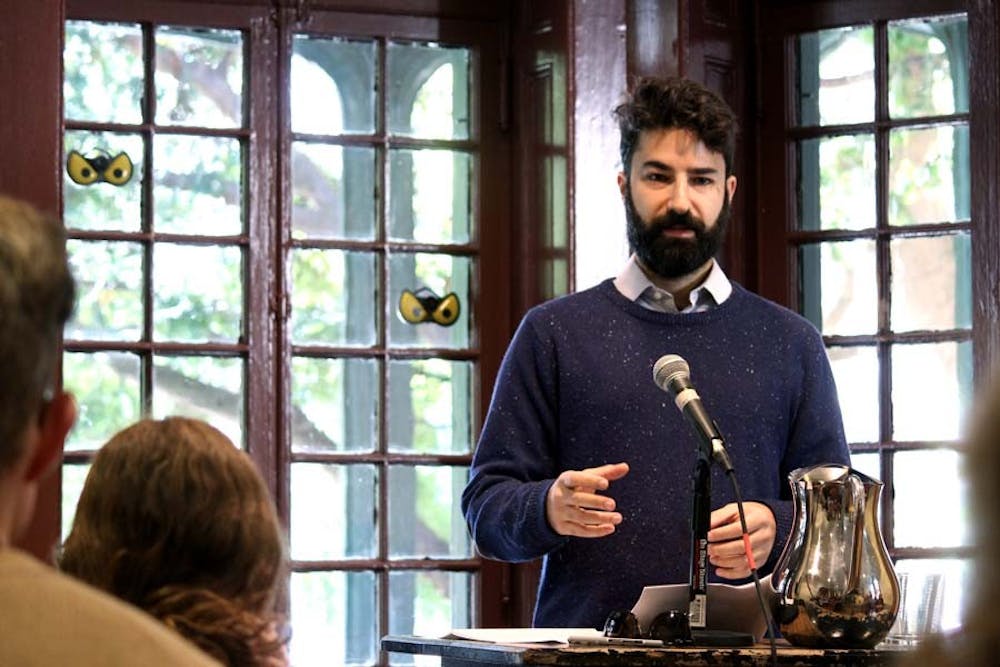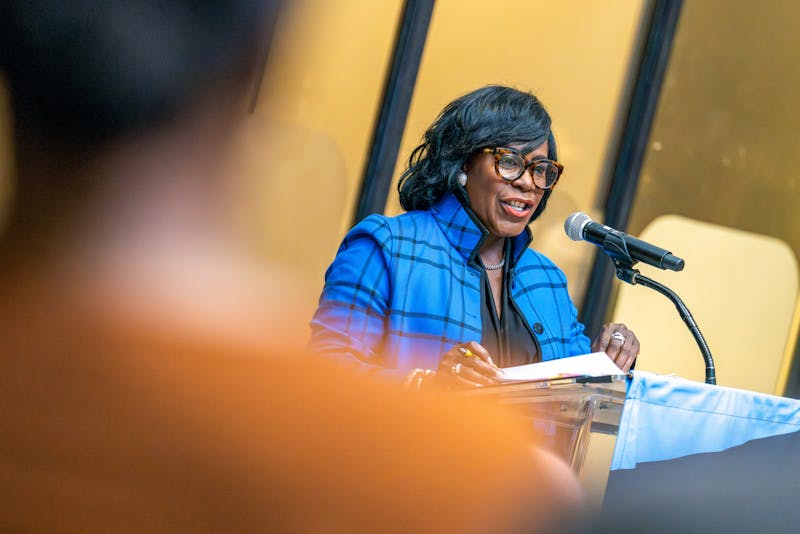
2004 College graduate and journalist Jeremy Greenfield spoke at a lunchtime talk at the Kelly Writers House.
Credit: Amanda SuarezMuch ink has been spilled already over the Internet’s role in publishing new writing — but some new publishers and authors have begun exploring its capacity to create new writing, too.
2004 College graduate Jeremy Greenfield is one such writer.
Greenfield, who is the editorial director of Digital Book World — an online publishing community and media outlet — came back to the Kelly Writers House yesterday to talk about creativity and collaboration in the digital age.
After reminiscing on his student years at the Writers House, Greenfield opened his talk discussing how technology has made it easier to satisfy people’s constant desire for collaboration.
People have been always collaborative and creative, he said, “to show each other how excellent they are.”
Greenfield defined the present as the “post-book era,” where “tools exist” to go beyond the boundaries of books.
Offering an example of one such tool, he introduced an early-stage startup app he’s currently working on called “Yarn,” which would allow its users to write collaborative stories online.
While some online collaborative writing platforms already exist — such as Authorea, a site allowing its users to share, cite and comment on research papers — they still pose numerous questions of marketability, accountability and copyright issues.
In regard to a point raised by the audience on how another, more popular crowd-sourced site, Wikipedia, could flourish despite inadequate reliability, Greenfield said, “I would seriously question that the thing that comes out of the professional class is necessarily better than the thing that comes out of the crowd.”
Greenfield goes on to describe a writing workshop with a lead author and others who contributed, prompting an audience member to ask who would “own” a story in a large collaborative project.
“Now as to who owns the story, going back to our original issues of copyright, it’s probably the person who claims they own it, which is the person whose name is on it in the writing context, technically,” Greenfield said.
“But I would also say the person who owns the story is the person who feels like they own it,” he continued. If there were two people who feel like they own part of the story, it might create a situation they would have to resolve, he said.
The attendees’ responses to Greenfield’s talk were quite divided.
While Thomas Choinacky, a resident in Philadelphia who came to the workshop after reading about Greenfield, was “intrigued by the startup in collaborative writing he mentioned,” some others were not as convinced with the writer’s ideas.
Another resident of Philadelphia and a frequent visitor of the Writers House, Andrew Kevonkian said Greenfield’s notion of collaborative writing “may be a novel idea, but it doesn’t make sense to me.”
The Daily Pennsylvanian is an independent, student-run newspaper. Please consider making a donation to support the coverage that shapes the University. Your generosity ensures a future of strong journalism at Penn.
DonatePlease note All comments are eligible for publication in The Daily Pennsylvanian.







